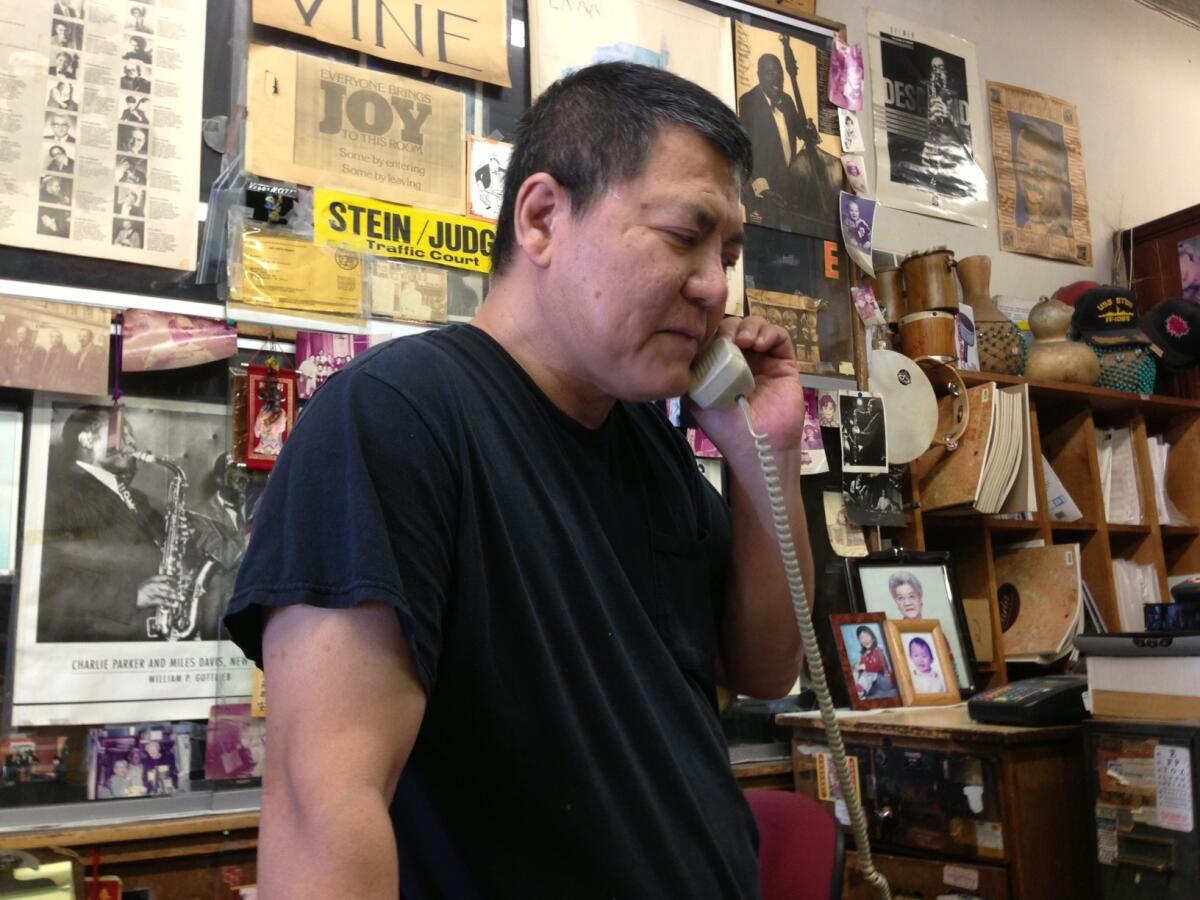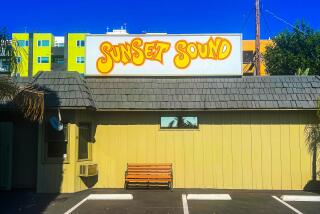Book offers peek into musical world of Hollywood’s Stein on Vine

The plane landed in Los Angeles, and Gary Chen decided not to make his connection to Taiwan.
It was 1980 and the young musician wanted to check in on some friends, so he did.
Not a bad city, thought Chen, who had just finished music school in Boston. If he could find a steady paycheck, maybe he’d stay a while.
How to find a job in 1980?
The Yellow Pages. Remember those?
Chen let his fingers do the walking and came upon a music shop called Stein on Vine, in Hollywood. He called and asked if they needed any help.
Maury Stein, the saxophone-playing owner, told him to drop by and he’d take a look at him. So Chen did, and when he found out what was happening in the single-story building a couple of blocks north of Melrose Avenue, he never left.
“They Call Me Stein on Vine: A 30-Year Layover in Los Angeles,” is the title of Chen’s new book.
The book offers a peek into what was something of a secret clubhouse. It puts you right there in the shop with some of the greatest jazz musicians of the 20th century.
The very first time Chen set foot in the store, Stein emerged from a back room with a couple of his pals: All-star trumpet player Freddie Hubbard and bass legend Ray Brown.
To Chen, they were heroes, and he couldn’t believe his luck in meeting them. Stein told him to come back the next day at 10 and he’d put him to work.
And so began an adventure in which Chen worked for one of the great characters in music and the two of them, who could not have been more different, became best friends. Chen suffered lousy pay, kept his boss’ many vices and backroom indulgences under wraps, and thanked the gods of music for the many friendships he built with the giants of jazz, some of whom lived in L.A. and some of whom stopped by the shop whenever they were in town.
Benny Goodman would drop by, as would Johnny Mandel, Pete and Conte Candoli, Gerry Mulligan, Nelson Riddle, John Clayton, Zoot Sims, Sonny Stitt, Mel Torme, Benny Carter and Al McKibbon. Chen became good friends with Stan Getz, Wayne Shorter and Cedar Walton. Horace Silver would pick up Chen and the two would go out for sushi.
Chen put his own dreams of a music career on hold because he couldn’t imagine a better life than the one he had in the shop, and when his mentor died in 1987, he took over the store and still runs it.
Chen knew from the beginning that this would be no ordinary job. On his second day, he writes in the book, he got a phone call he would never forget.
“Is Maury there?” asked the caller.
“Yes, who’s calling?” Chen asked.
“Frank,” said the caller.
“Frank who?” said Chen.
“Tell him Sinatra is calling,” said the singer.
I became a customer several years ago and wrote about Chen in 2010, when he began thinking seriously about the book that’s now available at the store or at Amazon.com. As a jazz fan, I loved hearing Chen’s stories about the great, unrecorded jam sessions that took place almost daily at the shop.
A lot of those guys have passed on and the jazz scene isn’t what it once was in Los Angeles. But Chen is still behind the counter, trying to keep the music and memories alive, now in the fourth decade of the longest layover in history.
More to Read
Sign up for Essential California
The most important California stories and recommendations in your inbox every morning.
You may occasionally receive promotional content from the Los Angeles Times.











